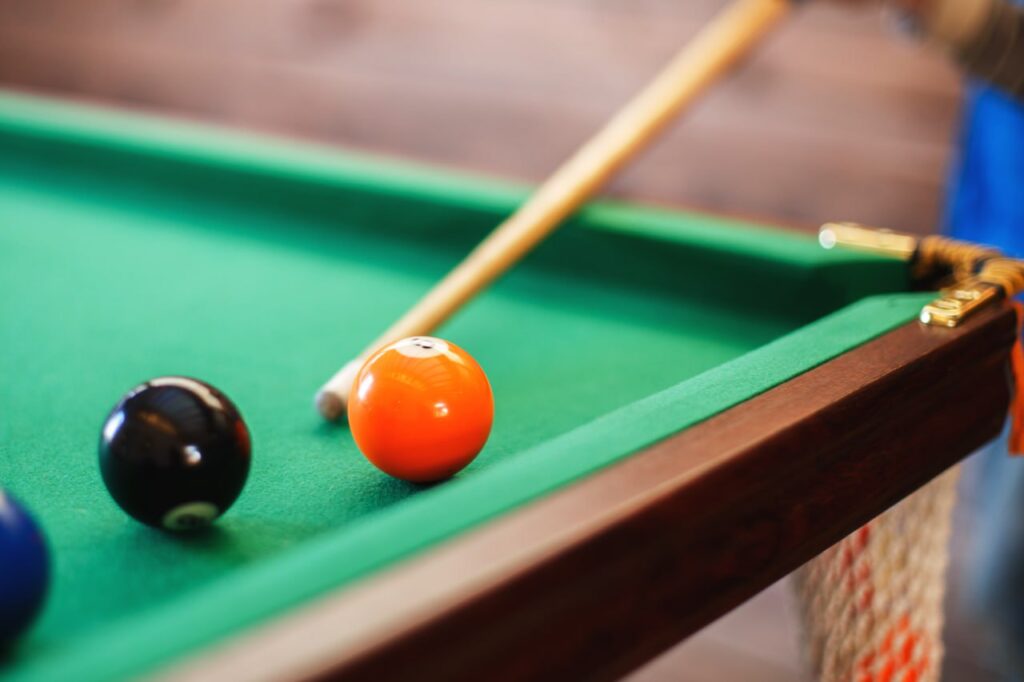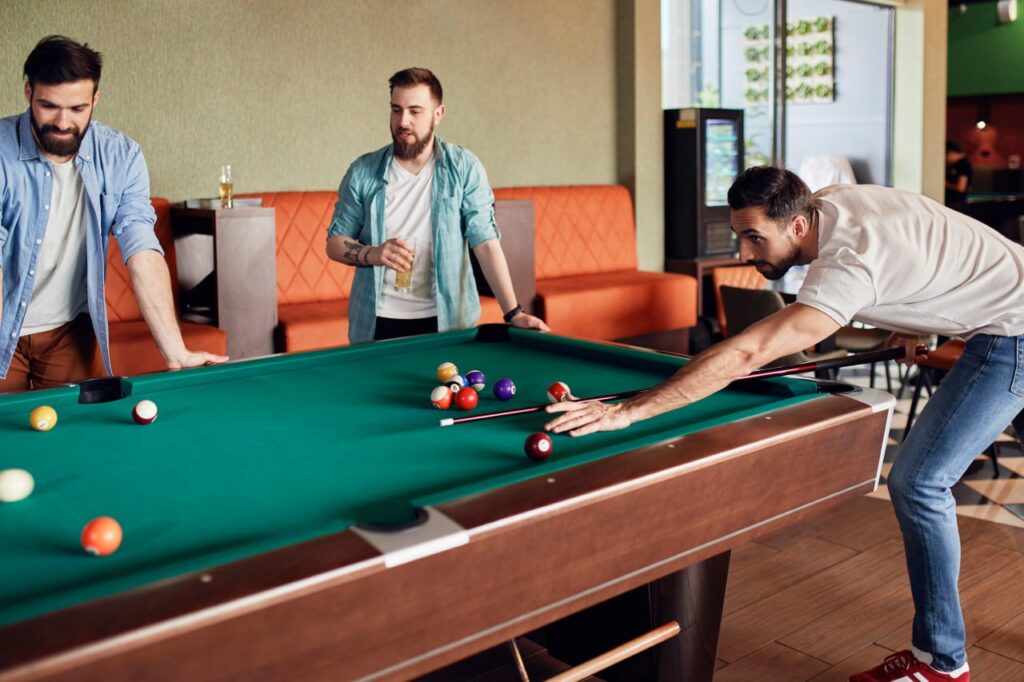Billiards, like many other sports, has acquired its own unique slang over the years. These terms and phrases not only add color to the game, but also help players communicate strategies, strokes, and situations more effectively.

Shot Terminology
Commonly used expressions that experienced billiard players use to describe shots.
- Bank Shot: A shot where the cue ball or object ball is driven to one or more cushions before hitting the intended ball or pocket. Bank shots are often used to avoid obstacles and make challenging shots.
- Kick Shot: A shot where the cue ball is driven into one or more cushions before hitting the target ball. This is often used to escape tough positions or make indirect hits.
- Cut Shot: A shot where the cue ball hits the object ball at an angle, causing it to move in a direction other than straight ahead. Cut shots require precise aim and control.
- Draw: Hitting the cue ball below its center to create backspin, causing it to reverse direction after striking the object ball.
- Follow: Striking the cue ball above its center to create topspin, which makes the cue ball continue forward after hitting the object ball.
- Masse: A shot where the cue stick is elevated and struck with a lot of spin, causing the cue ball to curve dramatically. Masse shots are often used to navigate around obstacles.
Game Situations
Slang descriptions used by billiard players to describe a variety of situations on the table.
- Scratch: When the cue ball is pocketed, resulting in a penalty. In many pool games, a scratch gives the opponent ball-in-hand advantage.
- Safety: A strategic shot intended to leave the opponent with a difficult or impossible shot. Playing safeties is an essential defensive tactic in billiards.
- Run Out: Successfully pocketing all remaining balls on the table without giving the opponent another turn. Achieving a run out is a sign of a highly skilled player.
- Break: The initial shot that starts the game, where the cue ball is struck to disperse the racked balls. A strong break can set the tone for the rest of the game.
- Hooked: When the cue ball is obstructed by another ball, making it difficult to hit the intended target. This often forces the player to use a kick or jump shot.
Table and Equipment
Such words billiard players use when they want to describe the table, cue and so on.
- Rails: The cushioned edges of the billiard table. Players often use the rails to bank shots or position the cue ball.
- Pockets: The holes located at the corners and sides of a pool table. Pocketing balls is the primary objective in many billiards games.
- Felt: The cloth covering the playing surface of the table. The condition of the felt can significantly affect ball speed and accuracy.
Player Lingo
These words describe the players and their behavior at the table.
- Sharking: Distracting or intimidating an opponent to gain an advantage. Sharking is generally considered unsportsmanlike.
- Hustler: A player who disguises their skill level to deceive opponents, often for the purpose of gambling.
- Stroke: The smooth and consistent motion of the cue stick during a shot. A good stroke is essential for accurate and controlled play.
Speake the Language of the Table
Understanding these terms will help you better understand the nuances of billiards and communicate more effectively with your fellow players. For many beginners it may seem difficult to learn all the terms at once, so it is better to learn them organically and gradually playing with more experienced players.

